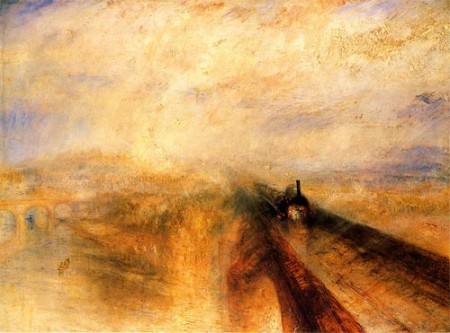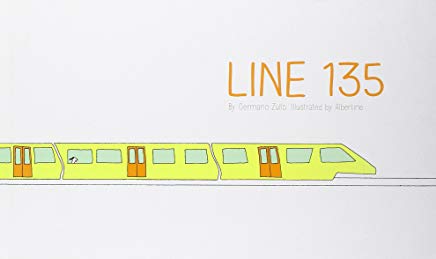The Blog
Blog Entry
Rail Blazer

You could spend probably hours debating the merits of traveling solo or in a group. I could, anyway. If I found someone similarly quarrelsome and theoretically inclined, with free hours to spare but no means to go actually traveling. Still, come to think of it, I’m happy to have this argument with myself.
Advantages of traveling with others: less likely to get lost, less likely to be set upon by bandits, less likely to hear, and respond to, voices in your own head. Less likely to fall asleep in precarious circumstances.
Checkers. Gossip. Pictures of yourself smirking before national monuments. Maybe you would consider these advantages.
Having a friend along can furthermore feel like a hedge against travel itself – if the scenery doesn’t work out, or the food, or the accommodations, well, then at least we can retreat to whatever baseline familiarity made traveling together seem like not such a terrible idea in the first place, maybe even laugh a little at our mutually confounded expectations, build a story of it after, trade exaggerations.
Yet what we sacrifice for the obvious benefits of companionship, and the less obvious gains to posterity, are arguably outweighed by a keener appreciation for the truly, dearly strange when no alternative exists. This isn’t always a pleasant experience, and it doesn’t always make for reliable memories after, but finally who’s to argue?
Line 135 by the elliptical Swiss writer Germano Zullo and his mononymed illustrator Albertine begins with a pencil-plain girl being accompanied through stretches of curious whiteness to the train station by her mother, and ends with her accompanied by her grandmother through similar blankness once she’s arrived, oh, but in between….
From an architect’s feverish helping of archways and billboards and overpasses in the city, through suburbs and junkyards to swamplands with inconceivable mammals rising up out of the contours; from acres and acres of flowers, no one exactly like the other, through ziggurats and teetering chateaus, this meticulously imagined panorama appears to unfold for the underage traveler alone inside her lime and orange conveyance. Jeez, who the heck is even driving this thing?
“My mother and grandmother say that it’s difficult enough to know yourself,” reflects the girl upon expressing her intention to go here and go there, and go this way and that way, and know the entire world once she is free from their provincial expectations.
“My mother and grandmother have forgotten what I have always known,” adds the girl (and adds Zullo), a welcome note of hubris near the end. If, as I have suggested here a couple of times before, we’re just going to stop reading these books unless they engage the adult as well as the child, then what follows is a thumb in our eyes at least, at best an unexpected reminder. “It is possible,” declares the girl about such wandering – with a massive inheritance preferably, or the unlimited metrocard of youth – though what she does not calculate, even if it is doodled and drafted and exhibited on these pages, is how much clearer the path to self-awareness when the world should come racing along beside you.

